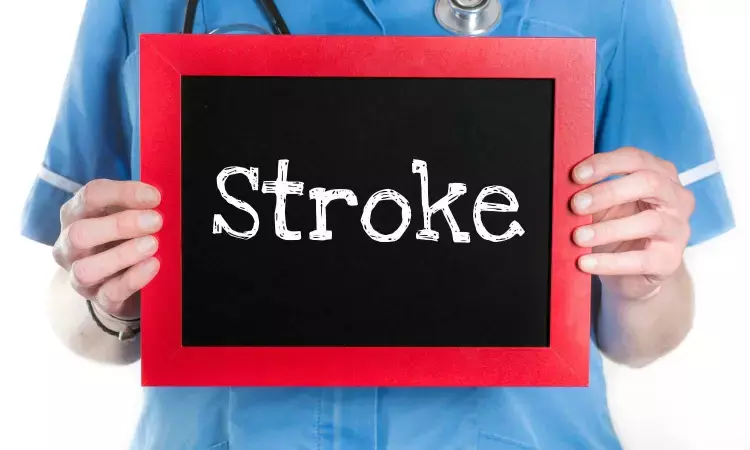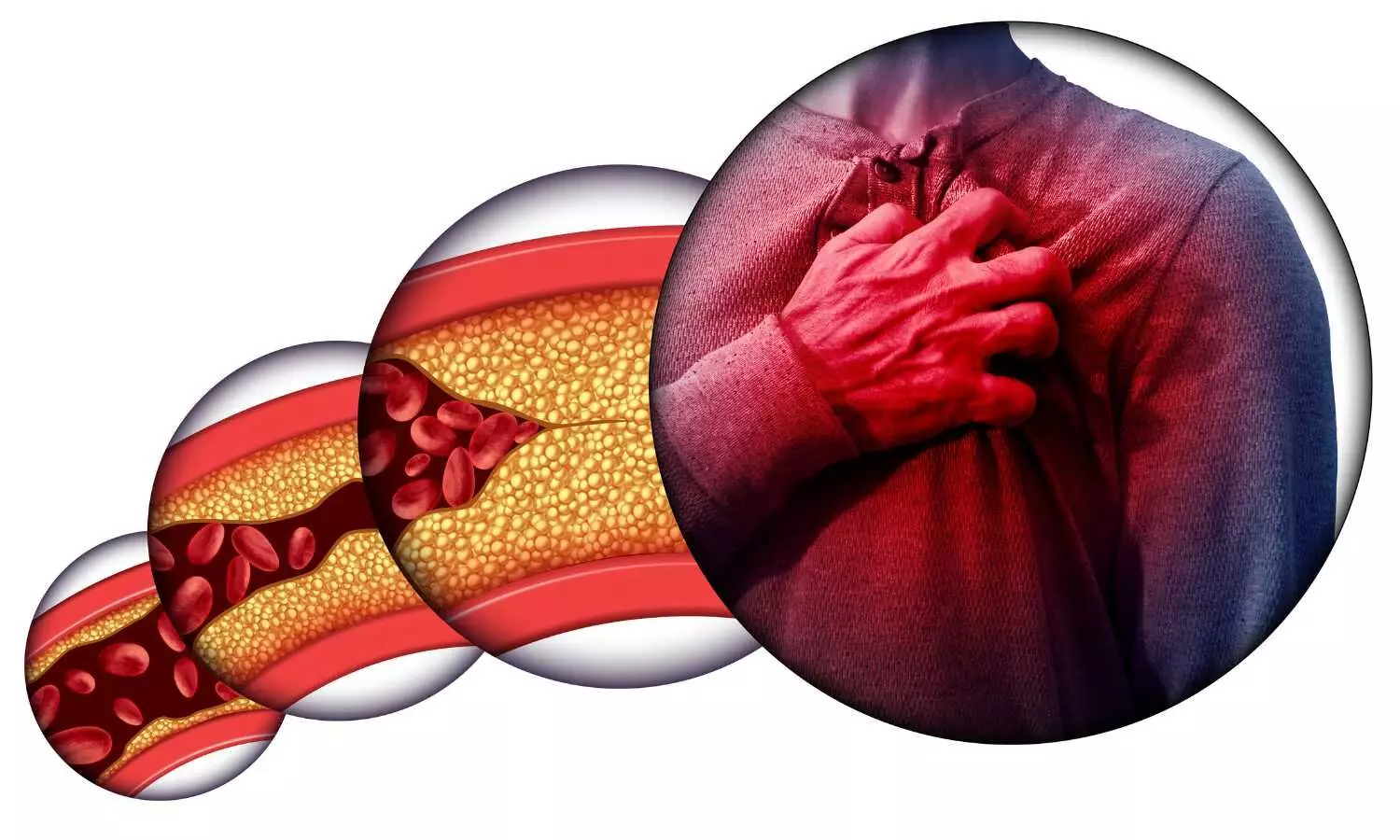- Home
- Medical news & Guidelines
- Anesthesiology
- Cardiology and CTVS
- Critical Care
- Dentistry
- Dermatology
- Diabetes and Endocrinology
- ENT
- Gastroenterology
- Medicine
- Nephrology
- Neurology
- Obstretics-Gynaecology
- Oncology
- Ophthalmology
- Orthopaedics
- Pediatrics-Neonatology
- Psychiatry
- Pulmonology
- Radiology
- Surgery
- Urology
- Laboratory Medicine
- Diet
- Nursing
- Paramedical
- Physiotherapy
- Health news
- Fact Check
- Bone Health Fact Check
- Brain Health Fact Check
- Cancer Related Fact Check
- Child Care Fact Check
- Dental and oral health fact check
- Diabetes and metabolic health fact check
- Diet and Nutrition Fact Check
- Eye and ENT Care Fact Check
- Fitness fact check
- Gut health fact check
- Heart health fact check
- Kidney health fact check
- Medical education fact check
- Men's health fact check
- Respiratory fact check
- Skin and hair care fact check
- Vaccine and Immunization fact check
- Women's health fact check
- AYUSH
- State News
- Andaman and Nicobar Islands
- Andhra Pradesh
- Arunachal Pradesh
- Assam
- Bihar
- Chandigarh
- Chattisgarh
- Dadra and Nagar Haveli
- Daman and Diu
- Delhi
- Goa
- Gujarat
- Haryana
- Himachal Pradesh
- Jammu & Kashmir
- Jharkhand
- Karnataka
- Kerala
- Ladakh
- Lakshadweep
- Madhya Pradesh
- Maharashtra
- Manipur
- Meghalaya
- Mizoram
- Nagaland
- Odisha
- Puducherry
- Punjab
- Rajasthan
- Sikkim
- Tamil Nadu
- Telangana
- Tripura
- Uttar Pradesh
- Uttrakhand
- West Bengal
- Medical Education
- Industry
EC-IC bypass surgery addition to medical therapy may not lower stroke risk in symptomatic artery occlusion

Supplementing medical therapy with extracranial-intracranial (EC-IC) bypass surgery does not alter the outcomes of stroke or death in patients with symptomatic ICA or MCA occlusion and hemodynamic insufficiency. No significant change was noticed in the composite outcome of stroke or death in the first 30 days or ipsilateral ischemic stroke beyond 30 days through 2 years.
The trial results were published in the journal JAMA on August 22/29, 2023.
The main aim of extracranial-intracranial (EC-IC) bypass surgery is to restore blood flow by reducing the stroke risk and it is probably one of the treatment strategies for patients with hemodynamically compromised ICA or MCA occlusion. However, due to meager benefits, the trials were criticized owing to the type of patients selected who might benefit from such surgery. The earlier Carotid Occlusion Surgery Study (COSS) study resulted in a reduction in reduction in the EC-IC bypasses performed for symptomatic artery occlusion. But later the Carotid and Middle Cerebral Artery Occlusion Surgery Study (CMOSS) was designed to compare the EC-IC bypass surgery plus medical therapy with medical therapy alone in symptomatic patients with ICA or MCA occlusion and hemodynamic insufficiency, with refined patient and operator selection.
CMOSS was a randomized, open-label, outcome assessor–blinded trial conducted at 13 centers in China. A total of 324 patients with ICA or MCA occlusion with a transient ischemic attack or non-disabling ischemic stroke attributed to hemodynamic insufficiency based on computed tomography perfusion imaging were recruited between June 2013 and March 2018 and followed till March, 2020. Patients were randomized to surgery plus medical therapy (surgical group; n = 161) or medical therapy alone (medical group; n = 163). Medical therapy included antiplatelet therapy and stroke risk factor control.
The primary outcome measured was a composite of stroke or death within 30 days or ipsilateral ischemic stroke beyond 30 days through 2 years after randomization. Nearly 9 secondary outcomes were also assessed, including any stroke or death within 2 years and fatal stroke within 2 years.
Key findings:
- About 324 eligible patients with a median age of 52.7 years participated. There were 257 men [79.3%]), Out of the total 309 (95.4%) completed the trial.
- There was no significant difference found between the surgical group vs medical group for the composite primary outcome (8.6% vs. 12.3%).
- The 30-day risk of stroke or death was 6.2% (10/161) in the surgical group and 1.8% (3/163) in the medical group, and the risk of ipsilateral ischemic stroke beyond 30 days through 2 years was 2.0% (3/151) and 10.3% (16/155), respectively.
- Of the 9 prespecified secondary endpoints, none showed a significant difference including any stroke or death within 2 years (9.9% vs 15.3%) and fatal stroke within 2 years (2.0% vs 0%).
Thus, the findings from this trial did not support the addition of EC-IC bypass surgery to medical therapy for the treatment of patients with symptomatic atherosclerotic occlusion of the ICA or MCA.
Further reading: Ma Y, Wang T, Wang H, et al. Extracranial-Intracranial Bypass and Risk of Stroke and Death in Patients With Symptomatic Artery Occlusion: The CMOSS Randomized Clinical Trial. JAMA. 2023;330(8):704–714. doi:10.1001/jama.2023.13390
BDS, MDS
Dr.Niharika Harsha B (BDS,MDS) completed her BDS from Govt Dental College, Hyderabad and MDS from Dr.NTR University of health sciences(Now Kaloji Rao University). She has 4 years of private dental practice and worked for 2 years as Consultant Oral Radiologist at a Dental Imaging Centre in Hyderabad. She worked as Research Assistant and scientific writer in the development of Oral Anti cancer screening device with her seniors. She has a deep intriguing wish in writing highly engaging, captivating and informative medical content for a wider audience. She can be contacted at editorial@medicaldialogues.in.
Dr Kamal Kant Kohli-MBBS, DTCD- a chest specialist with more than 30 years of practice and a flair for writing clinical articles, Dr Kamal Kant Kohli joined Medical Dialogues as a Chief Editor of Medical News. Besides writing articles, as an editor, he proofreads and verifies all the medical content published on Medical Dialogues including those coming from journals, studies,medical conferences,guidelines etc. Email: drkohli@medicaldialogues.in. Contact no. 011-43720751



